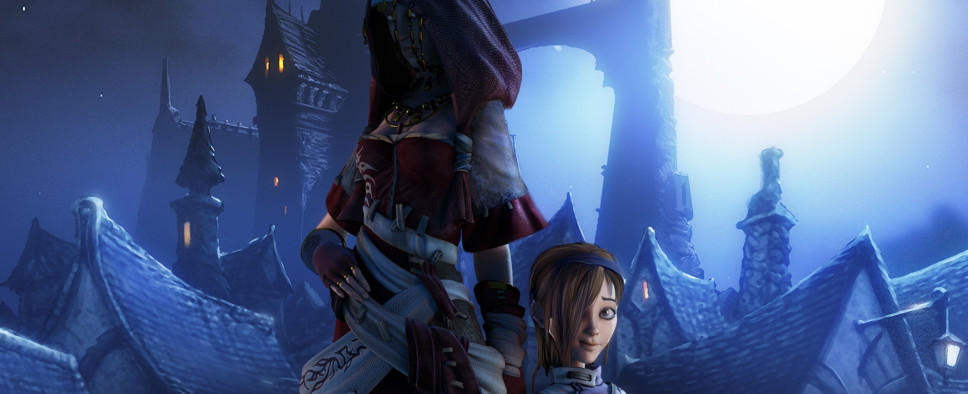Richard Cobbett on the Lessons of Fable
-
Category: News ArchiveHits: 3010

All the recent talk of a potential Fable IV being in development by Playground Games has prompted Richard Cobbett to dust off his Rock, Paper, Shotgun account and pen a lengthy retrospective article that looks back at the previous Fable titles in an attempt to learn something from what worked and what didn't in those games. A few snippets:
When you ignore all of that though, and look at Fable as the hack-and-slash RPG that it is rather than the fantasy life simulator it was pitched as, it’s always been a somewhat underrated series with great ideas practically oozing from its pores. Successful? Often not, but if a sequel promises anything, it’s another crack at what could have been great. What does Fable 4 have to draw on? Plenty…
For starters, Fable isn’t a series that just rests on its laurels. Each follows the same basic concept, with a largely linear path through the adventure, but with plenty of side-activities and quests to help shape your character and earn cash. The central gimmick is that how you play affects your character. Do evil, and you’ll grow horns. Use lots of magic and power will crackle from your fingertips. Likewise, how you choose to play affects your reputation and available titles, from “Chosen One” to “Nobhead”, with the NPCs reacting accordingly, and the availability of some of the missions and rewards. Demon Doors, for instance, won’t open and reveal their treasures for a goody two-shoes. Getting married and buying property raises your status, while having unprotected sex can result in having a child. Over the course of the game, these decisions mean that while everyone’s playing the same story, everyone’s character ends up unique. Said focus is also why during development at Big Blue Box (a company that would later merge with Molyneux’s Lionhead Studios) Fable went by the codename ‘Project Ego’.
This was more or less enough to carry the first Fable game, though it was a confused beast at the best of times and disappointing for how simple it was after all the promises and hints of something far grander. The story in particular was completely at odds with most of the actual action, jerking awkwardly from a game about hacking wacky critters and farting at comedy NPCs to plot beats about your lost sister being kidnapped and having her eyes gouged out by a bunch of bandits.
Not too surprisingly for a game that had been in development for years in the proximity of Molyneux’s ambitions, it felt like both a cut-down version of what it was meant to be, and not entirely sure what that was. Still, it was fun, offered a lot of freedom for an RPG not called ‘The Elder Scrolls’, and had great ideas, like being able to ‘Boast’ at the start of quests – taking on more risk for extra reward – and like heading out to fight evil in nothing but your Union Jack pants.
[...]
With the same push for great ideas, and the incredible things done in both RPG and other genres since Fable first appeared back in 2004, there’s ever possibility that a new game could pick up on what worked – the customisation, the humour, the charm of its tongue-in-cheek British world, and the commitment to trying new ideas – while learning from the games and emotional experiences that came later.
Fable is never going to be a hardcore RPG franchise, and that’s fine. There’s nothing wrong with hack and slash. But there’s a definite space in the market for a hack and slash with more depth and breadth than your average dungeon or monster infested field, and it’s shaped exactly like a plucky hero with a big sword, big ambition, and bowels full of poo-gas ready for anyone who might deserve it. Fingers crossed that if the rumours are true and Fable 4 is indeed on its way, it’s the game that takes everything the series stands for, and finally makes it a game praised for what it does well rather than standing primarily as a testament to what it could have been.

